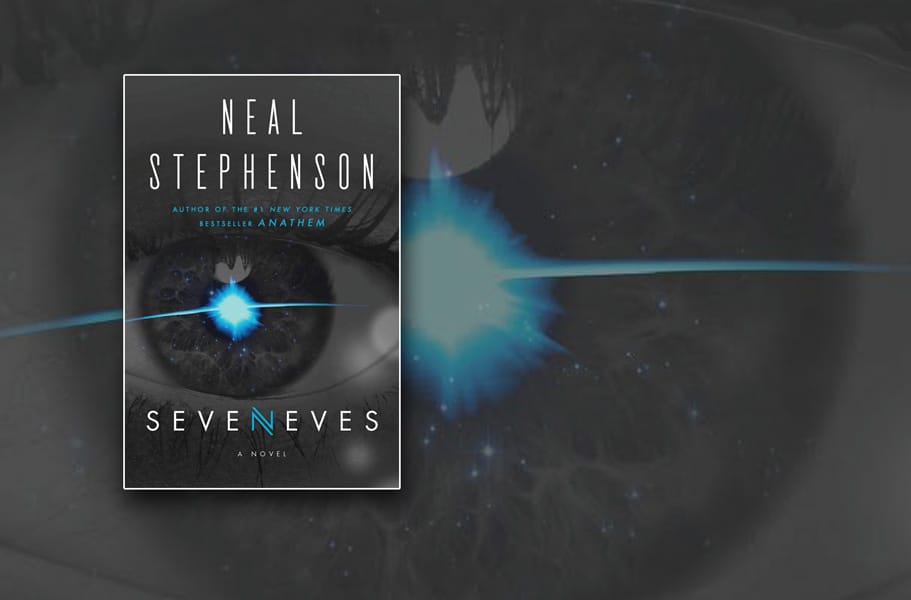
'Seveneves' by Neal Stephenson
I'm still undecided about Neal Stephenson. I'm drawn to his books, but I wouldn't say I love them. At a minimum, they're intelligent, and they deal with interesting technology. His writing is fast and active and unmuddled, which, given so many technological descriptions, is an impressive feat. Perhaps his story ideas and characterizations intrigue me, even if the execution is inconsistent. Regardless of the past, I know exactly why I'm reading his newest novel, Seveneves: It spans thousands of years in a single volume.
I love history. I love seeing how systems evolve over time, or how ideas drift through eras. How do religions grow and die? How do political battles morph from generation to generation? How do empires rise and fall? It's not easy to write about these concepts. How do you cover great swaths of time while still creating intimate moments and sympathetic, engaging characters?
Lots of people do it in non-fiction. Currently, I'm reading Naomi Klein's This Changes Everything, which details humankind's increasing carbon dependence after the industrial revolution as well as how the environmental fight against it has been waged over time. One of my favorite histories, Amy Chua's Day of Empire: How Hyperpowers Rise to Global Dominance, illustrated the themes and possible causes of imperial decline across six separate global superpowers. Topical history is meant to do exactly this sort of thing, to cover a single idea over time, but you don't expect it to have plot arcs, right?
So how does it work in fiction? I haven't read many successful examples. Fantasy novelists manage it with multi-volume epics, but each volume focuses on a particular generation. In this context, that's cheating. I believe James Michener did it with novels like Poland and Alaska, but I haven't read those. With novels like Blindness and Death with Butterflies, Jose Saramago offers a high-level view of ideas as they filter through society, and he does it while creating intimate and relatable characters, but those stories focused on specific (and sometimes absurd) hypothetical situations across a narrow period of time, which isn't the same thing. I'm sure there are plenty of examples with which I'm unfamiliar, but it's difficult to cite examples with which you're unfamiliar.
So this is why I'm intrigued by Seveneves. A five-thousand-year story in a single volume (moving into the future instead of recounting the past). In the first sentence, the moon explodes into seven pieces that begin to collide with each other and eventually rain down on earth. That's a great beginning. How will humans react and survive? Don't know. I'm excited to see how Stephenson introduces new characters, how he makes us feel what they feel, and how he manages to move the plot forward as characters die. (After skimming the pages a bit, I now have an idea.) I hope he pulls it off. If not, it will still be a worthwhile exercise.See you in a few thousand years.